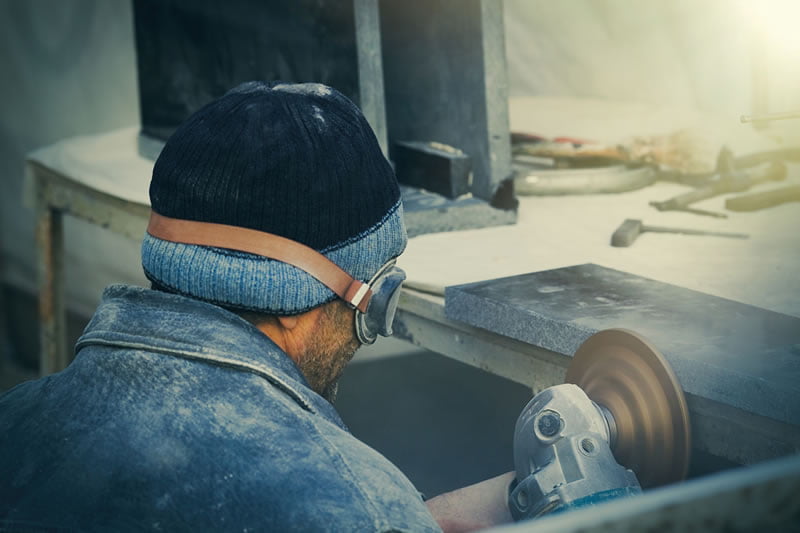Cancer Council Australia raises awareness of silica dust risk
With new estimates showing that over 230 lung cancer cases in Australia each year are caused by exposure to silica dust in the workplace, Cancer Council Australia is calling for tradies to be more aware of cancer risks on the job.
It is estimated that around 600,000 Australian workers each year are exposed to silica dust at work, including miners, construction workers, farmers, engineers, bricklayers and road construction workers, as well as those working in demolition.
Terry Slevin, Chair, Occupational and Environmental Cancer Risk Committee Cancer Council Australia, says that many Australian DIY home renovators may also not be aware of the invisible cancer risks lurking around when their bathroom tiles or new granite kitchen benchtop are being cut to size by themselves or contractors.
“Silica is surprisingly common – it’s found in stone, rock, sand, gravel and clay, as well as bricks, tiles, concrete and some plastic materials,” he says. “When these materials are worked on or cut, silica is released as a fine dust that’s 100 times smaller than a grain of sand. It’s so small you can’t see it – but if you breathe it in, in some cases it can lead to lung cancer.
“We continually see workers cutting granite kitchen benchtops, tiles or bricks, or demolishing materials without proper protection in place, which is a very real concern.”
Cancer Council estimates that silica dust is causing over 230 lung cancer cases each year across the country. These are cancer cases that could have easily been prevented through dust prevention or control, adequate ventilation or personal respiratory protection.
“Of around 11,000 new cases of lung cancer diagnosed each year in Australia over 8000 are due to smoking, 230 due to silica dust and 130 due to diesel exhaust,” says Slevin. “These are preventable and given the poor survival rate for lung cancer it is so vital we do all we can to prevent them.”
Slevin says that it was the responsibility of both employers and employees to act now to reduce the number of silica related lung cancer cases.
“Employers have a legal responsibility to provide a safe place to work. Likewise, those working with silica need to take responsibility for their future health, get informed and protect themselves.”
Cancer Council Australia has published a new fact sheet on silica and cancer risk, available at cancer.org.au/workcancer











